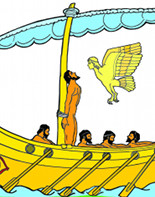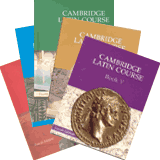
Site links to research projects, learning resources and tools can be found throughout the site, located either in the right sidebar or below main content. However, due to the ongoing disruption to studies caused by the current pandemic, I’ve created a page here to list those academic resources more recently created or compiled by various institutions and individuals. Whether learning online or learning to teach online, there is much useful material here, so do browse the links (and enjoy the videos).
The Warwick Classics Network hosts a range of resources for students taking Classical Civilisation, Ancient History, Greek and Latin. It also has assembled a huge array of links to a number of excellent sites for KS2 through to KS5 including e-learning courses and podcasts. Additionally you might want to subscribe to their Classics & Ancient History YouTube channel. I’ve picked out just a few of the highlights and supplemented them in the sections below.
Learning Resources – KS2 & KS3
MINIMUS is a unique Latin course for younger children. It’s based on a real family who lived at Vindolanda in 100AD: Flavius, the fort commander, his wife Lepidina, their three children, assorted household slaves, their cat Vibrissa – and Minimus the mouse!
The Primary Ancient Greeks website is the product of a long-term collaboration between the Cambridge School Classics Project (CSCP) and two professional storytellers. Its core aim is to provide reliable, accessible and engaging materials to support the teaching of Ancient Greece as a unit of Key Stage 2 history, in English or as a topic.
Classical Tales (KS2-KS3) hosts materials produced by the University of Cambridge School Classics Project to support teachers to bring the richness of classic tales to life in the classroom. The resources have been produced in collaboration with two of Britain’s leading professional storytellers, Daniel Morden and Hugh Lupton.
Discovering Ancient Greek and Latin gives a taste of what it is like to learn two ancient languages. It is for those who have encountered the classical world through translations of Greek and Latin texts and wish to know more about the languages in which these works were composed.
The CREWS Project are developing a set of videos, aimed at family audiences, that guide you through the basics of different ancient writing systems and show you how to write your name or a short inscription. You can watch the videos on their YouTube channel and find the accompanying resources here.
The Museum of Classical Archaeology has created online resources to assist new and younger learners. The site contains introductory Greek and Latin language and culture material in the form of exercise practice and all manner of creative activities. Why not make your own Greek vase or Medusa mask?
The Science of Stories project ‘invites teachers and pupils to use a selection of ancient classical myths as a way to ignite curiosity, develop “science capital,” and deepen understanding of key scientific concepts’. On the website you can find resources to download and use in the classroom. The selected myths cover a wide range of characters and situations, featuring, inter alia, Icarus, Typhon, and Talos!
Learning Resources – GCSE and A Level
A comprehensive range of OCR syllabus material for GCSE and A Level can be found on The Warwick Classics Network but here are some of their Classics for All approved language links.
Recordings of Greek GCSE set-texts – Classics for All has produced these videos for GCSE students studying Ancient Greek who may not have had the opportunity to hear the texts read in the original Greek. With thanks to the A. G. Leventis Foundation for its generous support for Classics for All’s Electra programme which works to introduce and develop the teaching of Ancient Greek in state schools.
The Cambridge Latin Course takes students from beginner to Level 2/GCSE. The story-based Course provides an enjoyable and carefully paced introduction to the Latin language, complemented by background information on Roman culture and civilisation. The material progresses from simple stories written specially for the Course, through adaptations of Roman authors, to original texts. The texts are accompanied by explanations of key language points, and are supported by grammar practice exercises.
Classics Homeschooling Help: Laura Jenkinson-Brown has created and made available a huge collection of teaching material to support Classical Civilisation Homeschoolers. Her specialisations are Myth and Religion and Homeric World/Odyssey. Powerpoints, worksheets, videos, comics, exam resources are only an email away.
Teaching Resources – Higher Ed
For colleagues transitioning to online teaching, the Women’s Classical Committee UK has published a presentation by Magdalena Öhrman and Ursula Rothe on YouTube. I appreciated the section on question design for language tests which has now given me a mind to commence an overhaul of my own online Latin tests.
Also highlighted in the WCC UK video is this list of Emergency online teaching help and suggestions compiled by Helen Lovatt for the CUCD.
How can you take your teaching online? Free courses, help and insights at the Open University.
Learning Resources – Higher Ed
Dr Cora Beth Fraser maintains a very active website packed with resources for students (undergraduate and postgraduate); topics include history, myth, language, and are designedly multimodal. Visit Classical Studies Support – There’s plenty to discover!
Dr Maria Haley, co-ordinator of Classics for All Manchester, regularly uploads videos providing practical support for students on examination and coursework, not to mention an entire series on Greek Tragedy. Subscribe to her YouTube channel here.
On her Facebook Page, Stand Up Classicist, Natalie Haynes is currently doing an entire series on the Heroides #OvidnotCovid. Here is a link to Episode 6 (because Hypsipyle!) but there are plenty more to educate and entertain.
The Open University’s Classical Studies Department has published on its blog a list of courses and tools, podcasts and videos. Some of my highlights include:
Reading Classical Greek: interactive quizzes based on Reading Greek. The quizzes allow you to test yourself on the grammar you meet at different stages of the course.
Interactive Latin: you can quiz on Latin noun, verb and adjective endings.
Continuing Classical Latin: this free course gives you the opportunity to hear a discussion of the development of the Latin language.
Introduction to the Iliad: this short online course focuses on the epic poem telling the story of the Trojan War. It begins with the wider cycle of myths of which the Iliad was a part. It then looks at the story of the poem itself and its major theme of Achilles’ anger, in particular in the first seven lines. It examines some of the characteristic features of the text: metre, word order and epithets. Finally, it explores Homer’s use of simile. The course should prepare you for reading the Iliad on your own with greater ease and interest.
Introduction to Virgil’s Aeneid: this free online course offers an introduction to the Aeneid. Virgil’s Latin epic, written in the 1st century BCE, tells the story of the Trojan hero Aeneas and his journey to Italy, where he would become the ancestor of the Romans. Here, you will focus on the characterisation of this legendary hero, and learn why he was so important to the Romans of the Augustan era. This course uses translations of Virgil’s poem, and assumes no prior knowledge of Latin, but it will introduce you to some key Latin words and phrases in the original text.
Jo Willmott teaches linguistics and Greek and Latin language in the Classics faculty at the University of Cambridge. The teaching link on her personal website allows access to an extensive range of language pdfs for both Greek and Latin.
Doubtless there are a great many more excellent resources out there. If you have any links to recommend, let me know.




